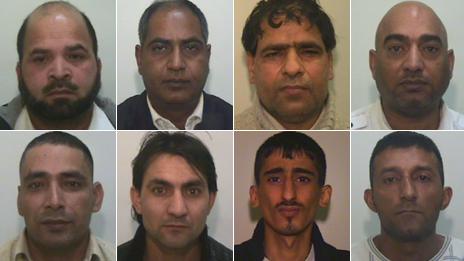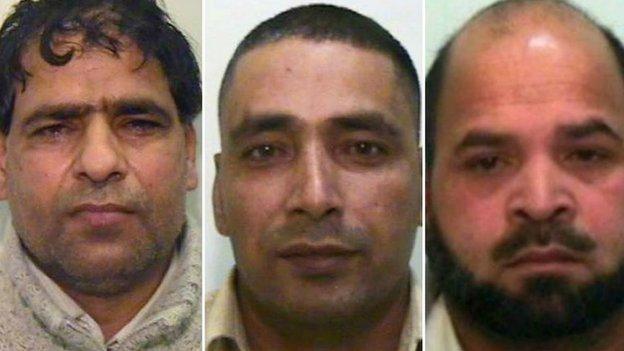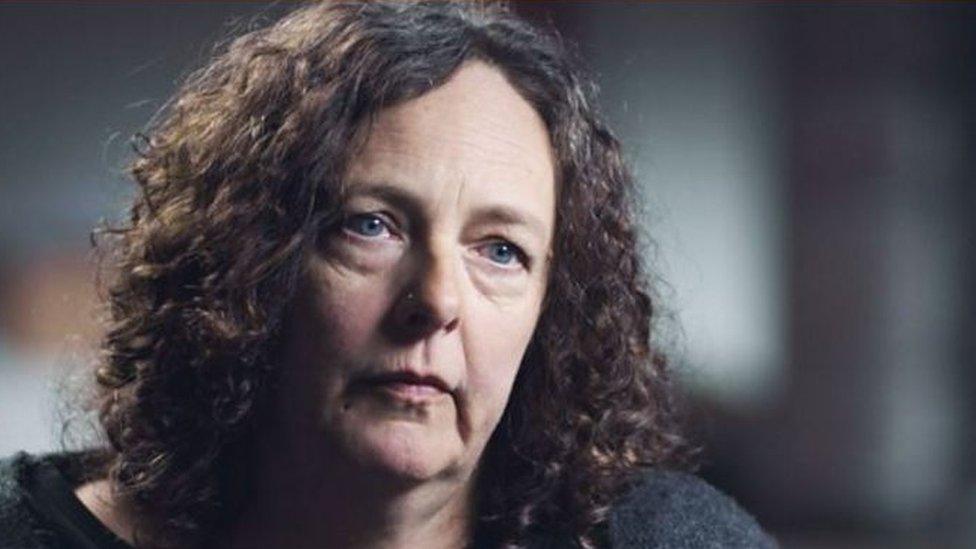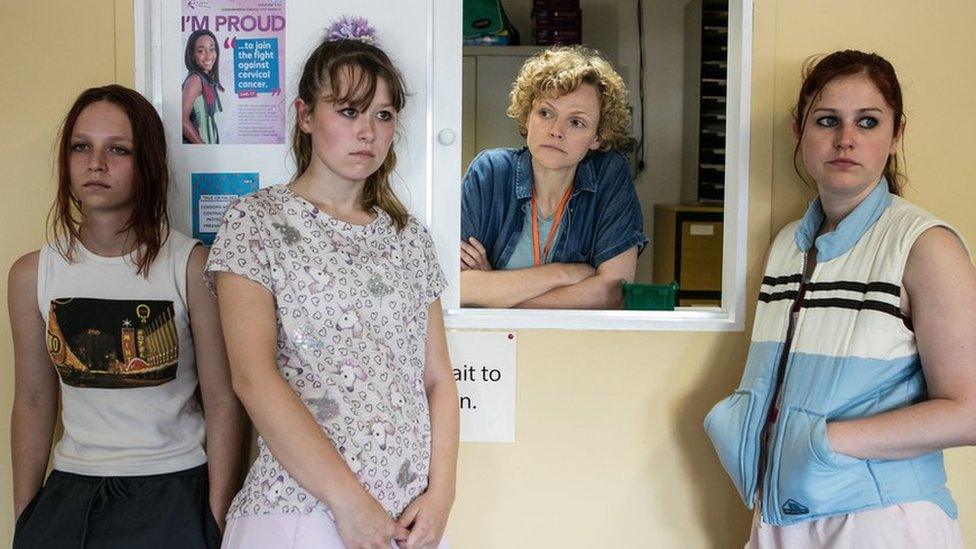Rochdale grooming: 'Why did I get a criminal record when I was a victim?'
- Published

A victim of Rochdale grooming gangs has told the BBC that convictions she received as a teenager - for offences linked to the abuse she was suffering - have destroyed her hopes of a career. A senior police officer has joined calls for a review on criminal records of child exploitation victims.

It's now 10 years since the start of the police investigation that led to the Rochdale grooming trial. The scandal shocked the nation - and helped change the way the criminal justice system treats victims of grooming.
But the story is far from over.
Last month we met Daisy*, who found herself at the centre of the scandal all those years ago.
She's now in her late 20s. But when she was just 12, she was groomed and sexually abused by gangs of adult men.
Daisy gave evidence at the Rochdale grooming trial; her testimony about the abuse she witnessed helped put men in prison. But the consequences of what happened to her are still preventing her from moving on with her life.
In a disused hotel ballroom just off the M60 in Greater Manchester, she describes to us how the authorities knew she was at risk, but failed to stop the abuse.
Instead of being seen as a victim, Daisy was arrested and prosecuted for offences - many directly linked to the abuse she was suffering.
"I got picked up so many times by the police... and it was always when I was out with adult men," she says.
"Even though I was kicking and screaming in the back [of the police van] saying 'he's hit me or he's raped me', I was always the one that got arrested. I was like, 'why are you not listening? What about them? I'm only a kid - why is it always me?'"
Calls to deport 'appalling grooming trio
'We should have listened to he broken teenagers'
One night in 2006, when she was just 14, a man became aggressive after she refused to have sex with him. She says they got into a fight and he hit her in the face. The police were called. That night it was Daisy who was arrested - and later convicted - of a public order offence. The man she accused of assaulting her walked free.
Another night - this time in 2007 - Daisy says she was burnt with a heated metal spoon as punishment for refusing to have sex with a man at a house party. When police arrived, she says they did not believe her version of events. Instead, when she became upset and disruptive, she was arrested and later convicted of disorderly behaviour. She still has a scar on her arm and as far as we know, the man who abused her was never investigated.
'Why can't I get a job?'
The convictions she received as a teen continue to hold her back to this day.
Daisy had ambitions to become a social worker, to use her painful past to help others in the future.
But because of an obligation to disclose criminal convictions, she has been prevented from pursuing her chosen career. The men who abused her have never been prosecuted.
"I'm nearly 30 years old, this started when I was 12," she says. "Why have I still got a criminal record? Why can't I get a job?
"[The police] messed up, not me. Why's nothing happened to the police? Why has nothing happened to these men? Why is it me that suffers still?"
Harriet Wistrich, director of the Centre for Women's Justice, is supporting Daisy in a civil action against Greater Manchester Police and the Crown Prosecution Service.
"This is something I feel very strongly about," she says. "Any criminal convictions that [Daisy] has, have been as a direct consequence of the abuse and exploitation. She not only suffered at the time [of the abuse] but she continues to suffer because of the criminal records.
"She yearns to put her awful experiences to some value. I think it's wrong that she be held back in this way."
Assistant Chief Constable Mabs Hussain of Greater Manchester Police told the BBC he thought while cases should be reviewed on an individual basis, now was the time for a wider, national debate in cases where young people may have been criminalised as a result of exploitation.
In relation to historical failures, he apologised to Daisy. He said there was no doubt she was a victim of horrendous abuse and exploitation and he accepted that the police response "could and should have been better".
"Our understanding [of these crimes] at the time wasn't as developed and our practice wasn't as improved as it is today.
"It's not an excuse... that's the reality of where we are."
He added that significant improvements had been made to the way child sexual exploitation is investigated and encouraged anyone with any concerns to please get in touch. "You will be supported and you will be heard."
*To protect her identity the victim's name has been changed.
File on 4 - Groomed, abused and put in prison: Rochdale's untold story will be broadcast on BBC Radio 4 on Tuesday 14 July at 20:00 BST and repeated on Sunday 19 July at 17:00 BST.
- Published9 May 2012

- Published11 May 2020

- Published3 July 2017

- Published19 May 2017
